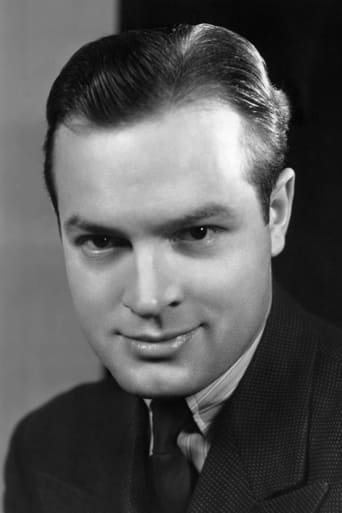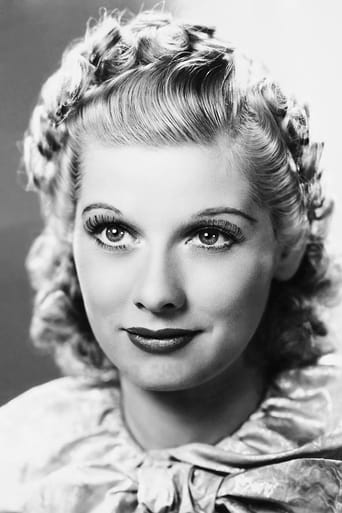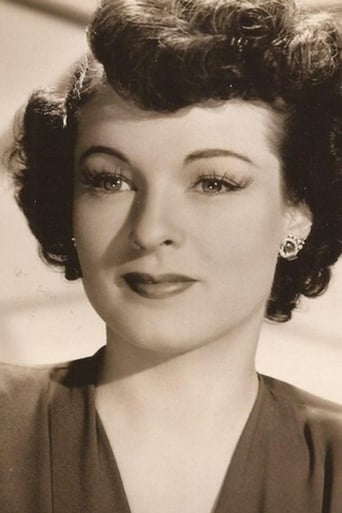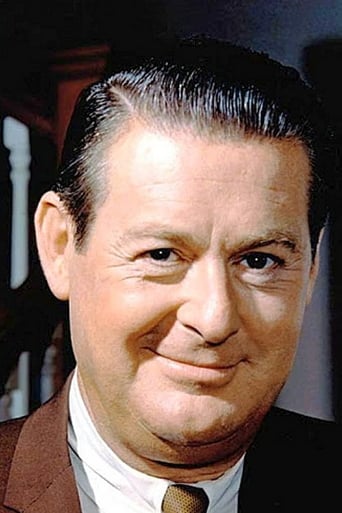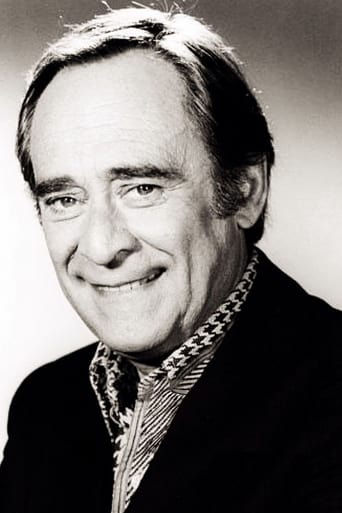Stevecorp
Don't listen to the negative reviews
Gurlyndrobb
While it doesn't offer any answers, it both thrills and makes you think.
Skyler
Great movie. Not sure what people expected but I found it highly entertaining.
Wyatt
There's no way I can possibly love it entirely but I just think its ridiculously bad, but enjoyable at the same time.
rhoda-9
Anyone expecting a sex farce, even one rendered innocuous by the censorship of the time, will find this not only a disappointing but a sobering experience. Instead of the colour one would expect for a comedy, it is in serious black and white, and what one takes away from it is not the naughtiness of illicit love but the grimness, frustration and boredom of middle-aged suburban marriage. These, along with bratty and selfish children, are made so plain that it's no wonder Bob Hope and Lucille Ball, married to others, are drawn together when they unexpectedly find themselves alone on a tropic vacation. While tedious, jokey happenings result in their never consummating their affair, either then or in later attempts, the movie never achieves a genuinely comic tone. It is sour and depressed, and when the two decide that it's wrong to hurt the ones they love (although the whole point of their getting together is that they love each other, not their spouses) they return to their lawful homes with a feeling of duty rather than joy. This is typical of the time--that period before the Sixties really got started. One could now acknowledge the formerly unsayable--that marriage was boring and even nice, good people had extra-marital urges. But it was still too soon to say that such urges should be acted on, so the urges are stamped on with a lot of unconvincing moralizing, which sounds more like fear than morality.Bob Hope, at 57, was too old for this story of couples married fifteen years who are the parents of small children. Lucy, at 50, looks much closer to the early-forties housewife she is supposed to be. But both are wrong for these sort of parts--having to play serious, Hope is merely stern and repressed. He was always the businessman among comedians, and in this he is all businessman. Lucy's character is as phoney as her whisk-broom eyelashes--she comes across as selfish and hard.The phoniness of the whole enterprise can be summed up in the situation that brings Bob and Lucy together. They are unexpectedly alone when illness and emergencies strike their spouses and another couple with whom they always go on vacation. And why do the three couples always do this? Because, we are told, these people, who live in huge, comfortable houses, have servants, and belong to the country club, could not otherwise afford to go away! Talk about writers who were not even trying!
misspaddylee
Directed by Melvin Frank and written by Frank with Norman Panama, "The Facts of Life" is an adult love story that will surprise you. Frank & Panama are Bob Hope experts, multiple Oscar nominees and the creators of such classic comedies as "The Court Jester" and "Mr. Blandings Builds His Dream House".Kitty Weaver and Larry Gilbert are two perfectly nice suburbanites. If Kitty's husband (Don DeFore) seems a little preoccupied with work and his gambling habit, and Larry's wife (Ruth Hussey) a little too caught up with the kids - well, that's life. They have no thought of straying. They certainly have no thought of straying toward each other. However, Fate (in that way of hers) forces these two perfectly nice people to spend time together. Kitty discovers that "the jerk who tells the lousy jokes at the country club" is a genuinely warm and funny fellow. Larry sees a softer side to that stuck up Kitty. Love blossoms with the added complications of vows and conscience.How Larry and Kitty deal with their feelings, their need to be together and the realities of their lives is played out in a frank, touching and very funny manner. It is wonderful to see two actors who happen to be bona fide comic geniuses working together in such perfect sympathy. The humour of character and situation also involves some gut grabbing slapstick, and some quiet moments that will make you smile or sigh a sentimental sigh for two perfectly nice people.
Robert J. Maxwell
Bob Hope and Lucille Ball have been happily married to their spouses for years but, accidentally thrown together for a few days, they improbably overcome their mutual dislike and fall for each other. Back in Los Angeles, they sneak into a drive-in for a bit of necking but are almost caught. They then attempt an assignation at a motel room in the Valley but a drunken Ball sends Hope out for some black coffee and he gets lost, so she gives up on him and takes a cab home. Still determined, they lunge at the opportunity to meet at a cabin in the woods near Monterey while their families are out of town. It's no use. The cabin's roof seems to be a colander, Ball unwittingly buys a rabbit instead of a chicken at the market, there is an argument, a pratfall into a mud puddle, and they realize they truly love their own families and resume their ultra-normal lives.It was written by Panama and Frank, the team that gave us the Road pictures with Bob Hope and Bing Crosby but, for whatever reason, they provide this film with only an occasional chuckle. Worse turkeys were ahead for Hope -- "I'll Take Sweden," "Boy, Did I Get a Wrong Number." The movie is imbued with something that almost amounts to an element of tragedy. This was released in 1960 and both Hope and Ball were beyond their prime, and here they are, stuck in a plot that has them acting like teenagers suffering from some sort of glandular condition. Of course their ages can't be blamed on them, and in fact Lucille Ball is pretty keen, but Hope is out of his element trying to wring laughs from such a sodden story.The story itself is a sad one. The point is that when you're stuck in a rut, you're REALLY stuck in that rut. The ruts we are witness to are boring and unfulfilling, thoroughly routinized. Hope and Ball return from Acapulco not only in love but filled with pride at the 350-pound marlin they caught. But when they try to tell their families, no one is interested. Ball's husband is buried in his morning newspaper and mutters "uhm"s from time to time, a weary cliché. Hope's situation is worse. He happily begins his fish story at breakfast but the two kids interrupt him each time by whining and complaining to their mother about wanting to be excused from gym period at school or staying overnight at a friend's house. Hope finally corners the man who picks up and delivers dry cleaning, and he responds, "Three hundred and fifty pounds, eh? A man down the block caught one that was 370." Poof.Hope and Ball never do get to spend the night together, or even an hour wrestling in the back seat. It's all very innocent. It reflects the values of the 1950s or even the 1940s, when adultery was an unforgivable sin and rebellion was smoking corn silk behind the barn. I'm sure more could have been done with it, but I'm not sure exactly what.
oldmotem
Lucy and Bob in a 1960 romantic, satiric comedy. What more could you want?This is very aware for its time and has some wonderful period scenes. Hope and Ball seem to have very complementary comedy styles which play extremely well off each other.This movie came out way back in 1960, yet Bob Hope mentions problems raising kids in the electronic age. How forward looking.The black and white format takes nothing away from this movie, including the scenes of Acapulco when they're alone together. All in all, an extremely enjoyable movie. I like Lucy much better in this style than her slapstick routine, although she's great in that too. Give this one a look sometime, it's worth it.

